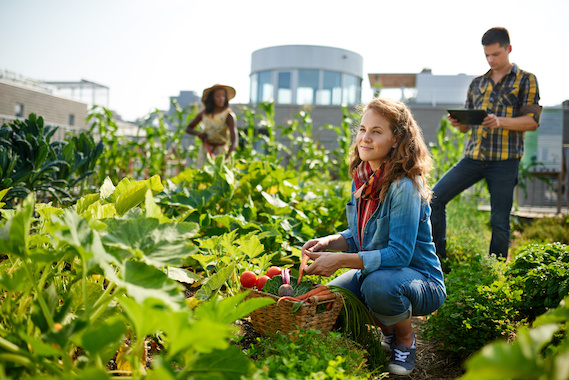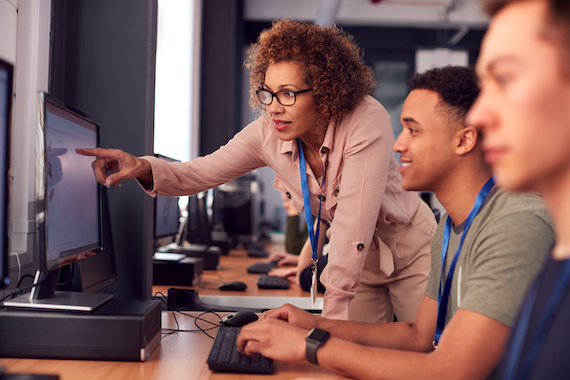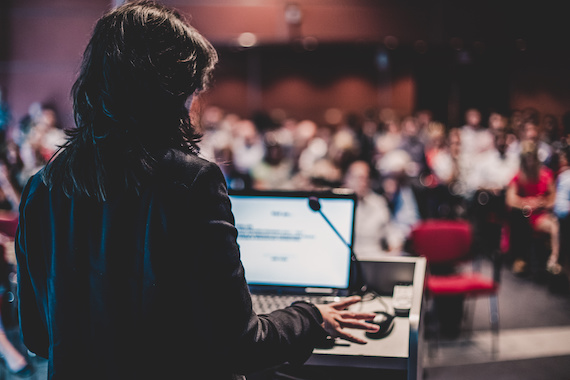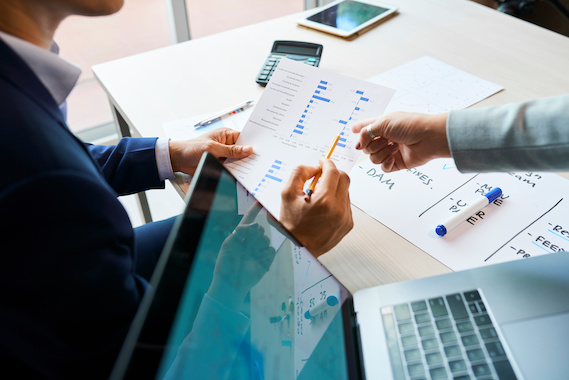Service-Learning
At the University of Northern Iowa, service-learning is a class-based experience, informed by/co-created with community partners, intended to expand and deepen discipline-specific knowledge and skills, strengthen the community, and develop a student’s sense of civic responsibility. Service-learning is the integration of service and learning to enhance each.
- Service-learning activities align with academic coursework, providing a deeper understanding of the academic discipline.
- Service-learning activities align with community strengths and needs AND faculty prepare students to work with the community partner.
- Faculty engage students in purposeful and guided reflection.
- Service-learning activities prepare students for active citizenship and social responsibility and builds students’ cultural competence for engaging with diverse populations in diverse settings.
Spring 2025 Service-Learning Courses
ACCT 3055: VITA: Individual Income Tax Preparation
ARTED 2500 (2 sections): Foundations in Art Education
ART 3030: Graphic Design- II
COMM 3455: Storytelling & Identity
COMM 4444: Communication, Community, and Change
COMM DM 3651: Advanced Digital Media Production: TV Studio Live/News
ECON 3125: Economics of Sustainability
ELEMCML 3149: Child, Family, School and Community Relationships
ENGLISH 1005: College Writing & Research, Section 2
ENGLISH 4785/5785: Applied Writing: Projects, Grants & Careers
ENGR 1000: Introduction to Engineering & Professional Practice
ENGR 4500: Interdisciplinary Senior Design
FAM SERV 1210: The Creative Experience
FAM SERV 2060: Strategies and Issues in Family Services
GEOG 1211(2 sections): Planet Earth Lab
HIST 1011: Field Experience: Public History
MGMT 3159: Leadership Effectiveness: Unleashing Your Potential
MKTG 3586/5586: Entrepreneurial Strategy
PH 1101: Introduction to Public Health
PH 3140: Planning & Evaluation of Public Health & Health Promotion Programs
POL AMER 2147: Law, Politics & Society
POL AMER 4188: Race and Public Policy
RTNL 2120: Foundations of Tourism
RTNL 2210/4210: Nonprofit Leadership Practicum ( Levels 1&2)
RTNL 4998: Technology, Cross-Cultural & Evidence-Based Practices in TR
SPAN 4045/5045: Translation
SW 1001 (Sections 1&2): Introduction to Social Work and Social Services
TECH 2114: Making Cool Stuff
TECH 3150: Graphic Communication Imaging
TESOL 3110: Structure of English
TESOL 4510/5510: Language Development
THEATRE 2055: Devised Theatre
UNIV 1010: First-Year Cornerstone: Integrated Communications I (Select Sections Only)
College of Education
ELEMECML 3149 - Child, Family, School, and Community Relationships
HPE 4383/5383- Health Promotion Implementation and Advocacy
RTNL 2210/4210/5210 - Nonprofit Leadership Practicum 1 & 2
RTNL 2130- Foundations of the Nonprofit Sector
RTNL 3378/5778: Community Based Tourism
RTNL 4998- Technology, Cross-Cultural, & Evidence-Based Practices in TR
Wilson College of Business
ACCT 3055 - Section 1 & 2 -VITA: Individual Income Tax Preparation
ECON 3125- Economics of Sustainability
MGMT 3159- Leadership Effectiveness: Unleashing your potential
MGMT 3183- Leadership Skills
MKTG 3586/5586- Entrepreneurial Strategy
College Social & Behavioral Sciences
FAM SERV 1210- The Creative Experience
FAM SERV 2060- Strategies and Issues in Family Services
GEOG 1211 (Sections 1&2)- Planet Earth Lab
GEOG 4170/5170- Climate Action Planning
HIST 1011 - Section 1 & 2 - Field Experience: Public History
PH 1101- Introduction to Public Health
PH 3140- Planning & Evaluation of Public Health & Health Promotion Programs
POL Amer 1048- Current & Emerging Issues in Public Administration
POL AMER 2147: Law, Politics & Society
POL AMER 4188- Race and Public Policy
SW 1001 - Section 1 & 2 - Introduction to Social Work and Social Services
College of Humanities, Arts & Sciences
ART 3030- Graphic Design-II
ARTED 2500- Foundations in Art Education
ARTHIST 4950- Race and Representation in Art
ARTHIST 5003- Collections and Care Management
CAP 3131- Rhetoric, Environment, and Community Engagement
COMM DM 3651- Advanced Digital Media Production: Television News
COMM 3455- Storytelling & Identity
COMM 4444/5444- Communication, Community, and Change
COMM 4544- Digital Culture & Communication
COMM 4765- Applied Writing: Workplace Communication
English 1005- College Writing & Research
English 3710- Craft of Creative Nonfiction
English 4192- English Senior Seminar: Literary and Digital Culture
English 4775/5775- Applied Writing: Specialized Documents
English 4785/5875- Applied Writing: Projects, Grants and Careers
English 5765- Applied Writing: Workplace Communication
RELS 4490- Professional Development Seminar
SPAN 3003- Advanced Conversation and Reading
SPAN 4045- Translation
SPAN 5045- Translation
TECH 3150- Graphic Communication Imaging
TECH 4159- Interdisciplinary Senior Design
TESOL 4110- The Structure of English
TESOL 4510/5510- Language Development
Theater 1050- Creative Drama
Theater 2055- Devised Theatre
University Interdisciplinary Courses
UNIV 1000- Cornerstone I
UNIV 1010- Cornerstone II
UNIV 219- Seminar: Housing Inequality & the Legacy of Redlining in Iowa
UNIV 4555- Interactive Digital Studies Practicum
Types of Service-Learning
Indirect Service-Learning: Not always visible
Working indirectly with individuals and organizations to address a community issue or need.
Examples:
- Painting rain barrels for land and water conservation efforts
- Revitalizing buildings and structures
- Creating a community garden
- Creating promotional materials for local organizations

Direct Service-Learning: Usually visible
Working directly with individuals and organizations to address a community issue or need.
Examples:
- Tutoring other students and adults
- Serving meals to the homeless
- Volunteering for disaster services

Advocacy Service-Learning
Planning, conducting and/or creating awareness initiatives and events to address a community issue or need.
Examples:
- Bringing in a guest speaker and discussion on a topic of interest in a community (author of "Reach Everyone, Teach Everyone")
- Educating and promoting pesticide-free lawns among local schools, daycares and churches (Green Iowa)
- Working with elected officials to draft legislation to improve communities

Research-Based Service-Learning
Collecting, analyzing and/or implementing qualitative and quantitative data to address a community issue or need.
Examples:
- Analyzing an organization’s survey results to evaluate the effectiveness of their program
- Conduct energy audits in public buildings
- Compiling history facts

